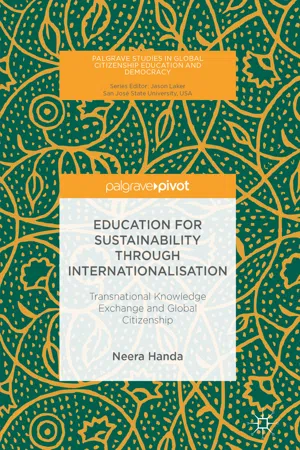Introduction
The tragic story of a child lost on a moonlit night depicted in the Australian film One Night the Moon,1 is based on a true event that took place in 1932, when a child went missing from an Australian outback station. In the film, as in the original story, the father of the lost child, a white man, refuses to accept the help of an Aboriginal local tracker to find his daughter. Not allowing the Aboriginal man on his land, the white man rejects the black man’s knowledge of the land and, in spite of having a large search party, fails to track the path the little girl might have taken.
A few days after the fruitless search has been abandoned, the mother, suffering from the loss of her child and not knowing what had happened to her little girl, finally defies her husband by going to the Aboriginal man to find her. Along with him, she eventually finds her daughter’s decayed body not very far from the house from which she had disappeared. The tragedy in the film worsens: the white man, having lost his self-confidence at his failure to find his daughter and having lost his wife’s trust and love, kills himself.
The Tragedy of the Moon on a Dark Night
This story of the lost child is a tragedy for each of the three characters who wanted to find her, but could not. The tragedy of the white man depicted in his failure to comprehend what he thinks is “my land”, is about his inability to communicate with the land and his arrogant rejection of the native Aboriginal’s knowledge, which result in him losing everything. The tragedy of the Aboriginal tracker, depicted in his plea “this land is me”, is about the lost opportunity for reconciliation and his longing to share his knowledge with the white man.2 The tragedy of the girl’s mother, depicted in her own inability to challenge her husband’s decisions, is about her failure to act on her intuition. She finally does act but, by then, it is too late. A failure to acknowledge the legitimacy of knowledge that is either unknown to—or, at best, seemingly incompatible with—the Western, empirical, modern and masculine ways thus brings dismal consequences for all concerned.
This tragedy, along with similar incidents of dire consequences for both the white settlers and Aboriginals, could certainly have been avoided. Perkins, the director of the film, who herself is an Aboriginal Australian, calls this “a tragedy of knowledge offered and knowledge rejected” , as this process of loss has been repeated across a range of areas due to a rejection of the diversity of viewpoints and a lack of holistic knowledge.3 Had there been a recognition and acceptance of multiple ways of knowing, the child could have been saved. If “the space between black and white Australians”4—which, according to Perkins , this story is about—had been a place to share and exchange knowledge and expertise, there would have been respect and acceptance leading to reconciliation, rather than antagonism and loss.
In Australia, it is true that the land has been a point of contention between the white settlers and the Aboriginal people.5 However, it has been much more than their respective claims on territory; it is a clash of worldviews.6 With the Aboriginals claiming that they belong to the land, and the colonisers claiming that the land belongs to them, there is little wonder there has not been reconciliation between the two. The knowledge of the custodians of this land, who managed to live in harmony with nature for thousands of years, has continuously been rejected by the European colonisers who, believing in only the utility of the land, have managed to destroy native fauna and flora, and the pristine environment , in just 200 years.
Perkins bemoans the loss of native Aboriginals’ knowledge, the “250 languages, the knowledge of country, landscapes, spiritualism that’s been offered and hasn’t been taken up by Australia”.7 The deep relationship that the Aborigines have had with the land, their reciprocity and respect for nature, have been neither understood nor respected by the colonisers. For them, the land they had occupied was nothing more than a territory that had to be emptied so as to be tilled, mined and developed.8
Atrocities, such as forcing the natives out of their land, their ‘country’, and separating Aboriginal children from their parents in order to be cultured in Western ways, took place. Western colonisation thus not only took indigenous people away from their land and their culture, but also terminated their relationship with nature.9 By rejecting their indigenous values, their knowledge of the land, Western colonisation silenced their stories.10
And this seems to have been the case everywhere in the world. Wherever European colonisers have gone and captured new lands, those who were indigenous to these lands were killed, captured, or displaced. Colonial ways, and Western culture, justified by the mantra of “cultural” superiority, were imposed on the colonised people. Western colonisation and European exploration have thus left their legacy in devastated ecology and in displaced indigenous societies throughout the world.11
In accordance with the economic development standards set by the Western colonial powers, this onslaught of modernity continues . Western development, in the name of modernity, has been vent upon people and nature everywhere in the world. Both continue to be “tamed and manipulated” ...
